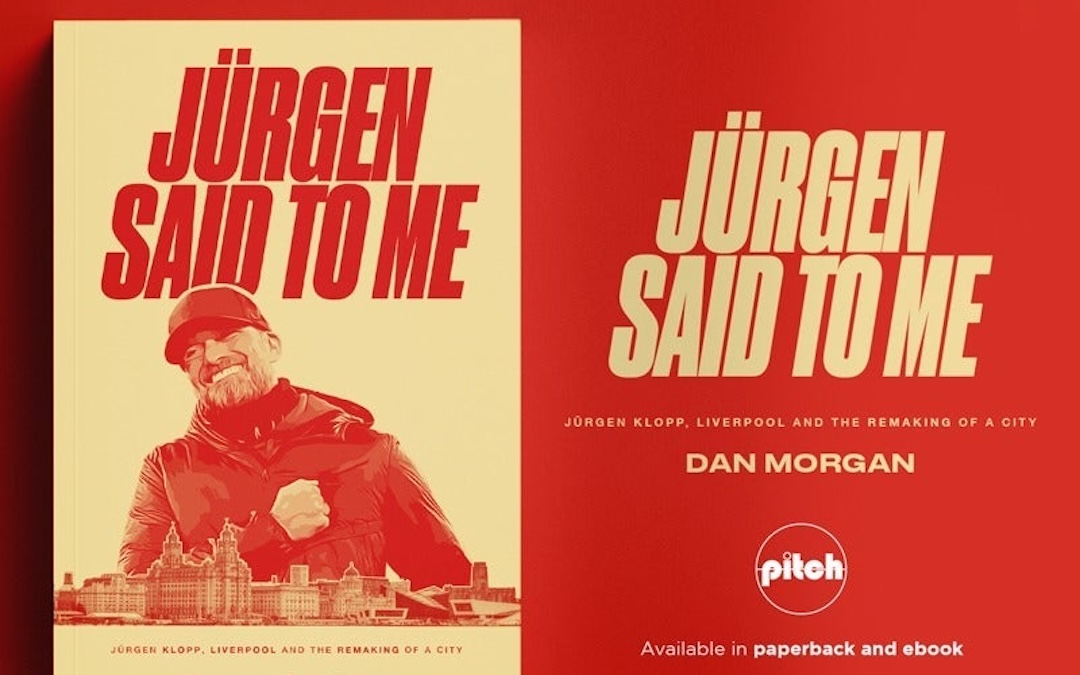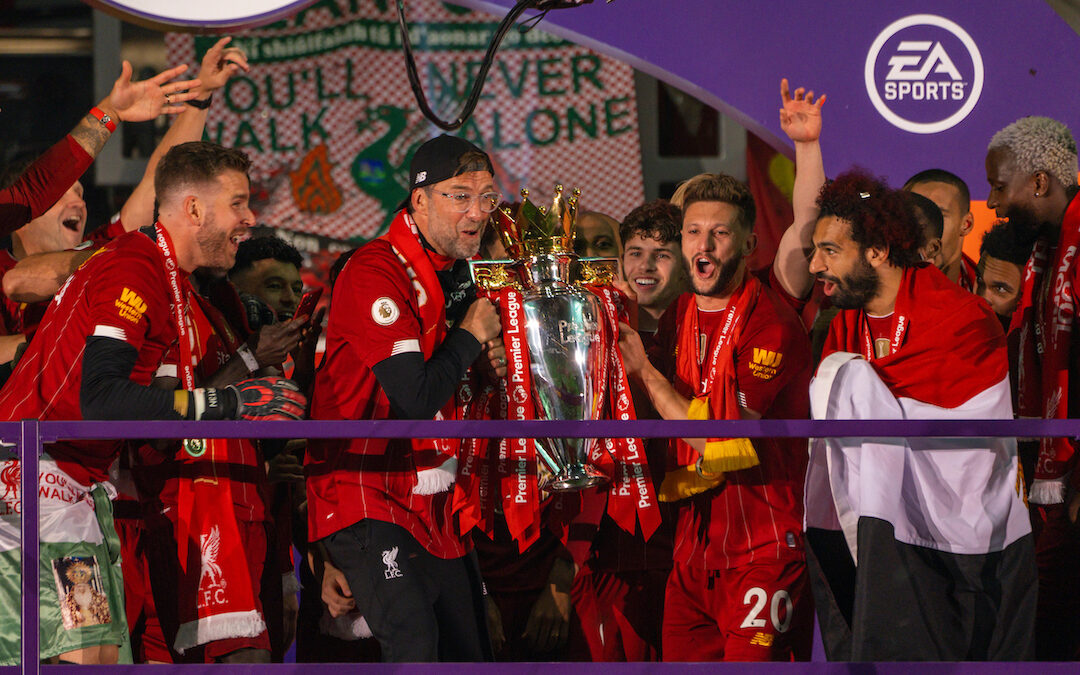Here is an extract from Dan Morgan’s new book, Jürgen Said To Me (released May 13th), on the night that Liverpool won the Premier League…
THE manager and team would have to wait until the evening of 22 June against Chelsea at Anfield – the penultimate match of the Premier League season – to get their hands on the elusive piece of silverware, the absence of which had haunted the club for three decades.
Klopp made the exception of talking about an achievement before a contest in his programme notes, reserving special praise for the Liverpool faithful: “Our supporters too, although absent since the season restarted, remain the wind in our sails,” he said in his ever-quotable style. “It has been their wait, their anguish, their dreams. I hope wherever in our city, region, the country, or the world they watch from, they realise it is they that make LFC the club with the biggest heart and the most joyful soul in world sport.”
Millions would again tune in from around the globe to witness a crowning moment, accompanied by a pulsating match in which Frank Lampard’s team refused to become part of the procession. The 5-3 scoreline had everything, including a riled-up Lampard accusing Liverpool’s bench of “giving it the fucking big ’un”, in a touchline squabble.
“I think the fact it was a night game, and a competitive, intense game as well really helped the occasion,” Neil Jones recalls. He was one of a limited number of matchday press present inside the stadium for what should have been Anfield’s most celebratory event in decades:
“It was possibly one of the best lockdown games I witnessed, played with quality and a pleasing amount of needle. I’m not sure you’d have gotten that with a 3pm Saturday against Burnley or Southampton.
“I was very aware of the fact that so many friends and family members were missing out on a moment I’m sure they would have dreamt of and imagined so many times. There was a degree of guilt in that respect, but also a desire and a determination to do as much as I could to bring the night to life for those who couldn’t be there.”
If the match delivered, Liverpool were determined their alternative celebration would too. An erected stage in the middle of the Kop was to be the scene for Henderson’s now infamous shuffle. It felt legendary in that sense, but also somewhat melancholic – a sentiment that Jones echoed:
“As a journalist, it was a somewhat surreal sight, the music blaring, fireworks and strobe lights and ticker tape, but all in front of an empty stadium. I thought Liverpool as a club did a good job in the circumstances, and the players all seemed to enjoy themselves, but you couldn’t avoid the feeling of ‘imagine what this should have been like’ as Jordan Henderson and the squad were on that stage in front of the Kop.”
For Jones, a Scouser who emanates from the Bootle area, this was what hit home most: “I remember leaving Anfield, probably just after midnight, and there wasn’t a soul about. The media entrance was part of the red zone, so was fenced off. I think that, possibly, was when the strangeness of it all hit me. I should have been fighting my way through the happiest, drunkest and most vibrant crowds I’d ever seen, and I wasn’t. I was walking to my car alone, a 30-year dream realised but an unavoidable feeling of ‘this isn’t how it was meant to be’. I picked a friend up on the way home. He’d been to the pub to watch the game. He’d had a drink and enjoyed himself. I hadn’t, and I didn’t. And I was one of the lucky ones.”
But, somehow, the dissonance of the situation didn’t detract from the unity of the fact. For the likes of Kavanagh, the biggest weight of all had been lifted and a manager some outside had written off as a cheerleader had delivered on his first press conference promise to win a title for the club. What’s more, he’d done so brandishing a smile and enjoying the journey with trademark vigour.
“It was so wonderful and as good as I’ve ever seen before. But it was the interviews he did that night and seeing him sob uncontrollably about what it meant. Rafa [Benítez] got Liverpool, but he’s not an extrovert. He made us incredibly hard to beat and hard-working. This manager leads in every way possible. He brings the crowd on to the pitch. The holy trinity of the manager, the team and the supporters in tandem can achieve wonders.”
Klopp had relished the journey and taken a city and supporter base with him. He delivered just as he said he would. Nobody could have envisaged just how it happened, but the curse had finally been lifted.
On 29 June 2020, a week after becoming champions and with Liverpool in the grip of the coronavirus pandemic, Klopp took it upon himself to write an open letter in the Liverpool Echo. In it he promised celebration, displayed gratitude and pleaded for patience among the people of Liverpool as the wait for a return to normality continued. He also curated a line that possibly best describes his own ethos and just why Liverpool were now champions of England, something so painfully yearned for:
“I already knew and liked the German word ‘solidarität’ before I came to Liverpool and now I have learned that the English word is solidarity, because I have heard it used by our supporters during the last few months. For me, it is the word more than any other that captures what Liverpool people are about.”
The book is released on May 13th and is available here, as well as information about book launch events in Liverpool and London where Dan will be joined by Neil Atkinson to talk about the book…













This article not working on the app.